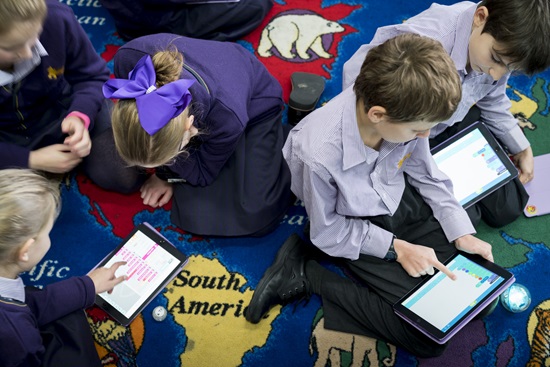
Our students need to develop the knowledge and skills required in disciplines like mathematics, science, visual arts and so on, but specialist skills are not enough: they also need generic soft skills. Alison Wray and Sue Bester explain why.
Economists, recruitment consultants, policy-makers, CEOs and educators all seem to be talking about the importance of ‘soft skills’; but what are soft skills and what exactly does soft skills development mean for our students and how does this relate for our career development program at Wesley?
Soft skills, often referred to as core employability skills, are a set of transferrable skills and key personal attributes that are essential for effective performance in the workplace. Highly valued by employers across all industries, these skills are generic in their nature, unlike the specialist skills required for particular job, and are common to most work roles and work places.
The World Economic Forum’s Future of Jobs Report 2016 identified the most sought after skills needed by employees to succeed in the evolving digital economy, as nominated by chief human resources and strategy officers from leading global employers. The top 10 soft skills needed ranked in order, will be:
- complex problem solving
- critical thinking
- creativity
- people management
- coordinating with others
- emotional intelligence – the ability to manage your own and others’ emotions, and recruit others in pursuit of effective problem-solving
judgement and decision making - service orientation – the ability to anticipate, recognise and meet others' needs, even if those needs are not explicitly expressed
- negotiation, and
- cognitive flexibility – the ability to switch your thinking or behaviour in response to a changing situation, or apply thinking or behaviour from a familiar situation to a novel one.
According to the Future of Jobs Report 2016, the top 10 soft skills are expected to be somewhat different to the top 10 soft skills in 2015, with creativity expected to become the third most important soft skill workers will need, up from tenth in 2015. While negotiation skills ranked fifth on the list of soft skills for 2015, by 2020 negotiation will drop to ninth.
Similarly, active listening, a core soft skill ranked ninth in 2015, will disappear completely from the top 10. Emotional intelligence, which doesn’t even feature in the top 10 today, will rank sixth by 2020.
According to the report, these changes are being driven in part by the rapid development of artificial intelligence (AI) and machine learning. AI and machine learning is not – yet – as creative as we are, putting a premium on human creativity, while data-driven decisions will diminish the importance of negotiated decision-making.
While tertiary or vocational training focus on the development of technical skills and knowledge in a particular area or discipline, academic qualifications alone will not provide young people with the experience necessary to develop the soft skills that increase their employability.
Critical interpersonal and relationship-building skills are at the core of our cocurricular program at Wesley. When they are performing in a musical ensemble, working cooperatively in a sporting team, volunteering with a community group or mentoring younger students, our students are nurturing these skills. Setting personal and academic goals, overcoming challenges and building resilience also provide the environment where these soft skills can grow.
Participating in a work experience placement, internship or summer school, or having a casual job provides myriad opportunities for students to meet people from a range of backgrounds, negotiate a new environment, practise their communication skills and acquire knowledge about a particular workplace.
We encourage our students to recognise the skills they develop and consolidate by participating in such activities, as well as show them how to further develop their soft skills, both at school and in the wider community.
Importantly, the predicted impacts of globalisation, automation and collaboration on the labour market are not likely to affect the value of these soft skills. Young people with strength and agility in these areas will be well-prepared and flexible employees, able to move within and across industries to forge meaningful and rewarding careers, regardless of the future working environment.
As Amanda McIntyre, Consulting Partner at PwC, has observed, ‘While technical skills will continue to lay the foundation for a strong career, to achieve career longevity and fulfilment – something of increasing value for people globally – you will need to supplement specialised capabilities with strong social, creative and collaboration skills.’
The good news is that developing such soft skills isn’t hard. Our teachers help students to develop the top 10 soft skills needed in many ways: from portfolio and performance assessments that enable real-world demonstrations of learning, to problem-solving in a rapidly changing situation, to using emotional intelligence to understand the behaviours and choices of others.
